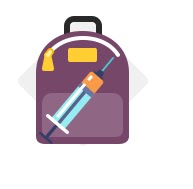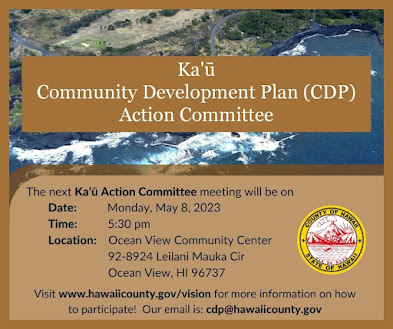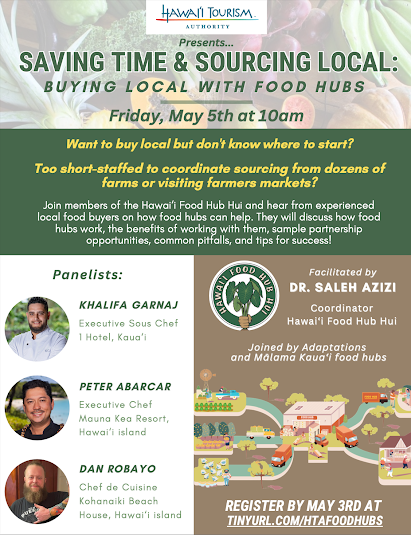 |
| Closeup of a Kaʻū silversword blooming with a native yellow-faced bee on the center blossom. NPS Photo/J.Wei. |
 |
| Ka'u Silversword, the 'āhinahina. NPS Photo |
Kilohana is a high-elevation haven on the slopes of Mauna Loa where National Park Service biologists and partner agencies have re-established the endemic silver-leafed plants. A few years ago, a member of the park's fence crew looked down and noticed a wee rosette-shaped plant growing in the dry, rocky ground. It looked like a tiny 'āhinahina (silversword). It was a chance discovery that confirmed Kaʻū silverswords (Argyroxiphium kauense), while exceedingly rare, were present in the park's upper Kahuku Unit miles from any known populations. Five more plants were found during follow up surveys. "That was one of the best texts I've ever received," recalls Sierra McDaniel, Hawaiʻi Volcanoes National Park's natural resources program manager. "We were already reintroducing plants at two sites on Mauna Loa, but to think there could be a third population really galvanized our enthusiasm," she said.
While Kilohana and the other remote, protected areas are closed to the public, a new digital storymap produced by the park shares the story of intense effort and collaboration across generations to protect the Kaʻū 'āhinahina and the ecosystems in which they grow.
 |
| Sierra McDaniel works with critically endangered silverswords. NPS photo |
At Kilohana, park biologists and conservation partners planted 330 young silverswords and more than 152,000 seeds within a protected fenced area between October 2021 and October 2022. So far, the initial survival rate of the plants is 97% which is good news for a plant that blooms once, then dies.
"One of the reasons the initial survival rate is so high is because Kilohana is fenced and that prevents invasive non-native goats, sheep and pigs from coming in and devouring the 'āhinahina," McDaniel said. "Fences are our best ally in protecting endemic plants and ecosystems."
For more information about 'āhinahina in Hawaiʻi Volcanoes National Park, please visit the new storymap and park website.
Other agencies working hard alongside Hawaiʻi Volcanoes National Park to save Kaʻū silverswords include the University of Hawaiʻi Pacific Cooperative Studies Unit; the U.S. Geological Survey; Hawaiʻi Division of Forestry and Wildlife; Hawaiian Silversword Foundation at the University of Arizona; U.S. Fish and Wildlife Service, Pacific Islands Office; Kupu; Three Mountain Alliance; and the Hawaiʻi Plant Extinction Prevention Program.
To read comments, add your own, and like this story, see facebook.com/kaucalendar. See latest print edition at kaucalendar.com, in the mail and on stands.
ALA KAHAKAI NATIONAL HISTORIC TRAIL IS APPROVED BY HAWAI'I PACIFIC PARKS ASSOCIATION, to be represented in its visitor center park stores on this island, and online. The partnership means Hawai'i Pacific Parks Association will develop and carry Ala Kahakai National Historic Trail sales items and will be positioned to help support Ala Kahakai programs and projects through HPPA donations.Nearly half of the Ala Kakahai Trail is in Ka'u. The trail runs between and through four national park sites. These are: Hawaiʻi Volcanoes National Park, Puʻuhonua o Hōnaunau National Historical Park, Kaloko-Honokōhau National Historical Park and Puʻukoholā Heiau National Historic Site.
HPPA Executive Direct Mel Boehl says, “We are excited to have Ala Kahakai National Historic Trail join our partnership. This was an easy yes for HPPA! The trail is an integral part of Hawaii's national park system and of Hawaiian history. This partnership will allow us to expand our interpretive products and services, which will further our mission to inspire and connect visitors and the community to national park sites in the Pacific region, and to Hawaiian culture. We look forward to working with Superintendent Aric Arakaki and his team to support their interpretive programs.” Ala Kahakai National Historic Trail was established in 2000 and is administered by the National Park Service. This "trail by the sea" traverses wahi pana (storied landscapes), ancient Hawaiian sites, and over 200 ahupuaʻa (traditional land divisions). It follows 175 miles of Hawaiʻi Island’s diverse coast.
Superintendent Aric Arakaki says, "Mahalo a nui loa to the HPPA board of directors, staff, and NPS parks in Hawai'i for welcoming the Ala Kahakai National Historic Trail into this partnership ‘ohana! Hawai'i’s trails have been in continuous use from when they were created centuries ago till today. We’re looking forward to working with HPPA to enhance, educate, and engage visitors and our communities on and with our parks and trail."
To read comments, add your own, and like this story, see facebook.com/kaucalendar. See latest print edition at kaucalendar.com, in the mail and on stands.
TINY HOMES FOR HOMELESS AND DELIVERING BEHAVIORAL HEALTHCARE THROUGH PRIMARY CARE were two topics of presentations by Gov. Josh Green at the 26th Annual Milken Institute Global Conference in Los Angeles, April 29 - May 3. Milken Institute is a nonprofit, nonpartisan think tank focused on accelerating measurable progress on the path "to a meaningful life, with a focus on financial, physical, mental, and environmental health." Its founder is Michael Milken, the financier who made his fortune in high yield "junk" bonds, and later through investing in health and education, followed by philanthropy.
The Conference, with its theme Advancing a Thriving World, brought together hundreds of leaders from around the globe to tackle critical issues facing society. The leaders come from all disciplines, including celebrities and entrepreneurs like Snoop Dog, to medical journalists like Sanjay Gupta and leaders of
.jpg) |
| Michael Milken, founder of the think tank Milken Institute and its Global Conference, which featured Gov. Josh Green this week. |
Presentations ranged from How 10,000 Communities Can Build Resilient and Equitable Economies to Investing in a Resilient Food System to Build a Better Tomorrow. All of the public presentations and panel discussions are available free online. See: https://milkeninstitute.org/ and https://milkeninstitute.org/events/global-conference-2023/speakers
Green, whose statement noted that he is the only U.S. governor who is also a physician, emphasized the need for healthcare reform to increase efficiency and accessibility for all.
"Housing is health care," said Green during a live interview, as he introduced Hawai'i's kauhale program of building tiny houses for those who are houseless. He stated that average spending on emergency room care for a homeless person in Hawaiʻi is $82,000 per person per year. Putting people in tiny homes following discharge from the hospital for follow-up care will reduce that cost from between 43 percent to 73 percent, depending on the severity of the patient's illness. These follow-up services will dramatically reduce ER visits and bring the average cost down to $21,000 a year. The savings can be reinvested in our communities, he said.
 |
| Gov. Josh Green, from the program of the Milken Institute's 2023 Global Conference. |
A statement from the Governor's office said Green "emphasized the need to bridge political gaps across the nation to focus less on bickering and more on leading with compassion and helping people in need across red and blue states."
He discussed a planned pitch to President Joe Biden for pilot housing projects, three for blue states and three for red, to test reduction in Medicaid costs and promote better housing and health care options using the kauhale model. The statement says, "Kauhale is a new approach to offering housing for neighbors who have experienced persistent homelessness. As a community-centered model, various forms of kauhale can provide previously houseless people an opportunity to thrive in a community they can call home."
He also stated that n Hawai'i, his loan forgiveness legislation for health care professionals has been approved.
See the video of Green's presentation: Healthcare of the Future, Part 1: Governing America: A Conversation with Hawai'i Governor Josh Green' posted by the Milken Institute. Milken Institute is based in Santa Monica, Washington D.C., New York, London, Abu Dhabi, and Singapore. The Global Conference was based at the Beverly Hilton Hotel.
To read comments, add your own, and like this story, see facebook.com/kaucalendar. See latest print edition at kaucalendar.com, in the mail and on stands.
HAWAI'I HAS 2023's SMALLEST DRUG PROBLEM, according to a WalletHub report released Wednesday. The report states that Hawai'i, among the 50 states and Washington, D.C., has the least drug use and addiction and is the second best when comes to drug use issues and rehab. It also ranked Hawai'i on the following:
41st – Share of Teenagers Who Used Illicit Drugs in the Past Month 48th – Share of Adults Who Used Illicit Drugs in the Past Month46th – Drug Overdose Deaths per Capita
30th – Drug Arrests per Capita
47th – Share of Adults Who Couldn't Get Treatment for Illicit Drug Use in the Past Year
49th – Substance Abuse Treatment Facilities per 100,000 People (Age 12+) Using Illicit Drugs
To read comments, add your own, and like this story, see facebook.com/kaucalendar. See latest print edition at kaucalendar.com, in the mail and on stands.




.png)


.jpeg)

.jpg)
.jpg)
